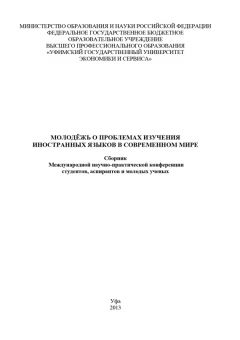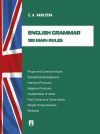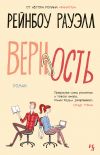
Автор книги: Коллектив Авторов
Жанр: Прочая образовательная литература, Наука и Образование
сообщить о неприемлемом содержимом
Текущая страница: 3 (всего у книги 10 страниц) [доступный отрывок для чтения: 3 страниц]
CREATION OF MYTHS IN MASS MEDIA
УДК 070.16:659.441.8=111
KOVALEVA N., SHAKIRJANOV I.
Ufa State University of Economics and Service (Ufa)
Today mass media are one of the main channels of obtaining information on which views, outlook, population stereotypes depend. Mass media are one of the most influential institutes participating in formation of public consciousness.
Among methods which are used by mass media for influence on consciousness of society it is possible to allocate funds of emotional influence (sensational nature, media violence, an intimidation method), change of the communicative and substantial party of information (distortion, information concealment, manipulation over time and a place of its giving, mystification), linguistic receptions (fragmentation, simplification, repetition, a metaforization, etc.). One of the most effective methods is a mythologization – purposeful introduction in public consciousness of socio-political myths – illusory model of reality. The myth in modern society carries out a number of functions:
• Completion of shortage of knowledge in need of an explanation of the unclear phenomena of political life, also it carries out also other functions:
• Orientation to the values broadcast by the myth,
• Association of individuals in society,
• Consolation function,
• Outlook formation,
• Impact on behavior
All this becomes possible thanks to low educational level of the population, shortage of knowledge about public political system, to trust to mass media and authoritative persons, unwillingness of own judgment of events of reality and received information.
For example, during elections, mass media on advantage to a certain political force create such image, image of the candidate which can make the most positive impact on electorate. Political struggle is won by that who managed to induce the majority of voters via various channels of mass media to make a choice in own favor.
The myth can be developed and the various commercial organizations, seeking to expand the markets, to increase extent of the influence, to win competitive fight or to increase profit.
It should be noted, as mass media in the majority – projects commercial, therefore, they try to maximize the profit. The enterprises of mass media with it are helped by the socio-political myth about pluralism of mass media. Exactly thanks to this myth it is possible to manipulate with mass consciousness; the pluralism means possibility of a choice, but if subjects of a choice aren't present, or illusion of their existence is created, the choice initially has manipulative character. There is also more global purpose of a mythologization of consciousness – to weaken, "to spread out from within" public system of the geopolitical rival on the international scene, differently the purpose is conduct information war successfully.
The structure of the myth and nature of his perception are well studied by public consciousness that allowed creating the whole industry fabricating and introducing myths for the purpose of manipulation with consciousness and behavior of audience in the democratic states.
Thus, creation of myths in mass media has under itself a number of the bases: on the one hand, society in its current state creates opportunity for successful introduction of the myth, on the other hand the myth is one of the most effective methods of conducting fight for economic and political resources therefore it is actively used by the power, the commercial organizations, participants of geopolitical processes.
References
1. Mass media and modern myths: http://www.moluch.ru/archive/46/5601/
2. Media industry academy" Science" Messenger of electronic and print media" magazine Archive" Release No. 2" A.A. Kashchuk. Television myths – one of ways of manipulation with consciousness of audience: http://www.ipk.ru/index.php?id=1535
NEW WAY OF STUDING SPELLING: HOW TO BECOME THE BEST SPELLER, READER AND WRITER
УДК 81’355:811.111=111
KRAINEVA A., ERUSHENKOV D.*
Ufa State University of Economics and Service (Ufa)
* Saint-Petersburg State University of Aerospace Instrumentation (St. Petersburg)
The English language is now the first language of about 400 million people, the native language of 12 nations and the official or semiofficial language of 33 nations. Geographically, it is the most wide-spread language on the Earth; one in every seven people in the world speaks English. In many respects, it is quiet actual to learn it. We start studying English by learning spelling and reading, though English spelling and pronunciation system is very confusing and often puzzles even the native speaker. The majority of pupils of different age are at a loss in reading and writing new English words.
English is written in an alphabetic Code that is used to encode auditory speech and inner speech (i.e. thought). 2 main ways to teach English are with sight words and with phonics [1]. Using the first one, the student needs to memorize thousands words, but it is difficult for the human brain to achieve this feat. With phonics students will need to know the "Keys for Unlocking the Code in Which English Speech Is Recorded in Print" (175 manageable items): 26 ABC’s, 44 Sounds, 72 Main ways to spell those sounds, 29 Rules that provide assistance most of the time, 6 Syllable types and ways to use them in decoding [2, 3]. There are 26 letters in the English alphabet but they stand for at least 44 sounds of real English that consist of vowel sounds and consonant sounds. Listening to phonic sounds the student realizes that letters stand for the sounds he hears in words. E.g., being able to hear the differences between cot [kɔt], cat [kӕt], and cut [k˄t] is necessary for learning how to spell these words. 5 Vowel letters (a, e, o, i, u) make 19 vowel sounds ([ei], [i: ], [əi], [ɔʊ], [ju: ], [æ], [e], [i], [ə], [˄], [ɔ:], [a: ], [з: ], [eə], [u: ], [ʊ], [əi], [ͻ], [au]). They consist of 5 Long Vowels, 5 Short Vowels, 3 Dipthongs, A long and short o (2 sounds), 4 r controlled vowel sounds. The other 21 letters are used to make 25 consonant sounds. There are no letters really for zh as in measure vision. It might be noticed that the letters c, q, x don’t have a phoneme listed; they are not listed as a pure phoneme because the sounds can be represented by other letters or spellings. E.g., the letter c can be represented by the phonemes /k/ or /s/ as in cent [sent] and can [kæn], the letter x as in fox [fɔks] can be represented by 2 phonemes /ks/ and the letter q can be represented by 2 phonemes /kw/ as in queen [kwi: n]. There are approximately 72 ways to spell these sounds, which one will refer to as phonograms. A phonogram is a letter or combination of letters that represent a sound. E.g., ck is a phonogram that says /k/ as in clock; oy is a phonogram that says /oi/ as in boy. The list of the basic phonograms contains the original 70 phonograms that Romalda Spalding used in her work in the 1950's, as well as 2 additional phonograms. The phonograms nk as in bank and our as in journey were added because the number of words that use them qualify them as «basic» phonograms [3] (Table).
Table
List of the Basic Phonograms

In spelling, each sound in a word is represented by a phonogram. If we pronounce the word past [p˄st] slowly to hear the individual sounds, we will hear four different sounds: /p/ – /ă/ – /s/ – /t/. For each sound, we write down a phonogram: p a s t. In fact, the number of letters in a word doesn’t necessarily correspond to the number of phonograms because of the multi-letter phonograms. One sound is represented by one phonogram, but that phonogram may have 2 or more letters. The 29 rules are extremely helpful, even if some are not totally dependable. The more knowledgeable the students are about the foundations of English, especially its Latin and Greek heritage, the more often the rules will make sense and assist the reader or speller. E.g., The 7th Rule stands: «There are 5 kinds of Silent E’s. Silent E № 1: Used in E-controlled syllables. The E makes the vowel say its name – time, rate, complete, delete, cope etc. Silent E № 2: No English word can end with v or u, so this E protects us from breaking the rule – love, blue, cave, clue. Flu is the only syllable that is borrowed from the word influenza. And, you and thou actually end with the phonogram ou). Silent E № 3: Softens с’s and g’s so that they say their 2nd sound. When c is followed by E (or i or y) it says /s/ – chance, nicely; when g is followed by E (or i or y) it may say /j/ – charge, manageable. Silent E № 4: Every English syllable must have a vowel, so this E fills that role in these types of words and syllables – cas-tle, bat-tle, rat-tle, lit-tle. Silent E № 5: No Job/Odd Job E – In a word like are the E helps us see that we are reading a word, not reading the phonogram /ar/. In a word like raise the E helps us see that we are not reading the plural of some odd word, rai (one rai; two rais etc.) In some words it is difficult to note a reason for the E so we think of the E’s in such words as having ‘no job.’ Many E’s are leftovers from Old English and were probably once pronounced» [3].
A syllable is a letter, or a combination of letters, uttered together, or a single effort or impulse of the voice [4]. Sometimes syllables might be presented as word chunks. Every syllable must contain a vowel. There are 6 syllable types: Open syllables; Closed; R-controlled syllables (in these syllables, a /r/ modifies the sound that we would expect a vowel to represent); Consonant-syllables (these are the Silent E type #4. The silent final e is necessary so that we have a vowel in each syllable); Pair syllables (in these syllables, it takes more than one letter to represent a vowel sound). Students can use these syllables to check their spelling, to see if they have spelled fits these forms. When it is better understood how the language is represented in print, the ease and speed of its usage will improve.
The Code-phonics is the most rational way to become an excellent user of the language, because English is an alphabetic language that is represented by phonograms designated to represent specific sounds. The person simply sees the Code, learns it and uses it subconsciously. The more students understand the Code, the more automaticity they will develop.
References
1. Hanna P.R., Hanna J.S., Hodges R.E & Rudolf E. H. – Phoneme-grapheme Correspondences As Cues To Spelling Improvement. – Washington: U.S. Government Printing Office. – 1966.
2. Linda Schrock Taylor: Archives (Past Articles by Linda Schrock Taylor). Media source / www.archive.lewrockwell.com/taylor/taylor-arch.html
3. Rippel, M. All-About Spelling. – All About Learning Press, Inc. – 2013. Media source / www.allaboutlearningpress.com
4. Webster’s Dictionary 1828 – Online Edition. Media source / www.webstersdictionary1828.com
PODCASTING AS THE NEW WAY TO IMPROVE LANGUAGE SKILLS
УДК 81'243-047,24 УДК 004.52:81’243-047.24=111
LASKINA S.
Ufa State University of Economics and Service (Ufa)
Nowadays, translation of texts and making essays is not enough for people, who want to learn foreign language in a proper way. Our life is changing and it requires modern knowledge from you, if you want to keep up your level. And this is why learning opportunities should be improved all the time. Technology is increasingly being promulgated as a powerful mechanism that can transform education. This essay will describe you one new way of distance self-dependent learning – podcasting.
Have you ever thought about the reason for which you know your native language so well? Why did you learn it by yourself, without any special courses? This became possible thanks to the one condition – the Russian language has been surrounding you everywhere since childhood. We know the meanings of words at a subconscious level, without dictionaries. So, language acquisition has one simple condition – if you want to improve your speaking and comprehension abilities, you just need to get a lot on information in a foreign language. Having surrounded yourself with information sources in a language, you want to learn it. Of course, language schools, classes and courses will simplify and accelerate the learning process. But nowadays you can get information in a foreign language and expand vocabulary independently.
Listening to English speech is the best way to expand your vocabulary. The English language is non-phonetic language, it means, that spelling and pronunciation of the words can be different indeed. While reading the text you can pronounce some words in the wrong way, and next time you will not recognize these words while communicating in English. However, regular listening to English speech can help you to learn the right pronunciation and intonation [1].
Listening exercises are often used in language schools as one of the ways to learn English. These exercises should help students to understand English speech. But listening exercises are usually too simple and easy to perceive, that makes then far from reality. Of course, the best thing you can do to learn English in a proper way is to communicate with native speakers. But if you do not have such an opportunity, what can you do?
Surfing plenty of web-sites about self-dependent learning of the English language has given us a lot of audio lessons, audio books and online radios as a stuff for studying. However, there is no mention of podcasting – one of the most comfortable ways to improve learning of a foreign language.
A podcast is a type of digital media content; the word is formed by the merger of two concepts: “pod” from the popular audio-player iPod and “casting” from broadcasting [2]. So, podcasting is the way of publishing audio records, produced on a particular topic and coming out on a regular basis. Podcasts are freely available online and that is the main reason of their popularity.
The advantages of using podcasts:
1. Regular listening will improve your comprehension abilities, even if you are a beginner;
2. English podcasts will accustom you to the sound of a real life speech;
3. You can listen to podcasts everywhere – just use your mobile phone or player;
4. English podcasts – really quick way to expand your vocabulary;
5. Podcasts will help you to immerse into another culture, if you do not have an opportunity to visit another country;
6. And you can choose any subject, you are interested in.
The best podcast resource is iTunes podcast-catalogue, which you can find download online, using official site www.apple.com. The main benefits of using iTunes are its intuitive interface, matching for all devices and actually wide variety of educational podcasts. For example, this chart of English podcasts can be used as opportunity to improve our knowledge of English:
1. Learn English with BBC Russian – using these short topical modules from BBC Russian Service will help you learn the English language, if you are a beginner. It contains just few Russian phrases to help the educational process. https://itunes.apple.com/ru/podcast/learn-english-bbcrussian/id303639548?mt=2
2. English as a Second Language (ESL) Podcast – Learn English Online, coming out with the help of Center for Educational Development is for anyone who wants to improve their English speaking and listening skills. https://itunes.apple.com/ru/podcast/english-as-second-language/id75908431?mt=2
3. 6 Minute English with BBC World Service. Learn and practice useful English language for everyday situations with BBC. Each program is six minutes long and contains examples and explanations to help you improve your knowledge of the English language across a wide range of topics. https://itunes.apple.com/ru/podcast/6-minute-english/id262026947?mt=2
4. The English We Speak with BBC World Service. Make the English you speak sound more natural with this podcast. Every week you will know a new everyday English phrase or a piece of slang in this three-minute program. It is suitable for the advanced learners. https://itunes.apple.com/ru/podcast/the-english-we-speak/id262026989?mt=2
5. EnglashClasses101.com podcast is a fun and innovative way of learning the English language and culture at your own convenience and pace. It consists of free daily podcast audio and video lessons. https://itunes.apple.com/ru/podcast/learn-englishenglishclass101.com/id323145903?mt=2 [3]
Of course, listening to podcasts can not be substitute of traditional learning opportunities, such us reading, speaking and grammar exercises. But for people, who know the basis and want to improve their knowledge, podcasting can be the solution. Just turn it on and you will not see it becoming a habit.
References
1. www.ninja-english.com;
2. en.wikipedia.org;
3. www.itunes.apple.com
THE MAIN QUESTIONS OF A TECHNIQUE OF LEARNING OF FOREIGN LANGUAGES
УДК 81’243-047.23
MAMAYUSUPOVA K., SUFIYANOVA I.
Ufa State University of Economics and Service (Ufa)
Today foreign language skills (especially English) are not luxury, and urgent need. If you have desire and, certainly, opportunity to take this "the impregnable fortress", it is necessary to choose an effective method of studying а language.
For a start it is necessary to define a purpose (for what this language is necessary for you). The purposes can be various at everyone: a communication with carriers of other culture, a conducting the international business negotiations and documentation as a result of cooperation with foreign partners, desire to perceive foreign works of art (this cinema, literature, music) in the original language, travel to this or that country, scientific interest to studying languages, etc. The choice of a method of learning of foreign language depends on the purpose. If there is a motivation and the correct mental attitude, you will be able easily to present the final result. Certainly, studying any foreign language demands efforts, but you shouldn't be afraid of it so. If some learns and speaks such languages as Chinese or Hindi, so why it is impossible to seize any other, less difficult?!
Today there is a set of various methods of studying of language. All of them have quite strong differences. Exist:
– traditional method. Being trained by means of a traditional method, it is possible to know the grammar and vocabulary of a language in perfection, but not to own communicative skills. Besides this method demands a lot of time;
– communicative method – one of the most popular methods today as it assumes complex studying all important aspects of language. It both reading, and letter, both audition, and informal conversation. The method is aimed generally at the development of communication skills, and also knowledge of basic grammatical and lexical rules.
These are the most widespread methods of studying. But besides them there are also other, quite "creative" methods of studying of language:
• silence method (Silent way): lack of speech during training, application of color cards for perception of language at the level of subconsciousness;
• immersion method (Sugesto pedia): creation of an invented image of the native speaker;
• method of physical reaction (Total-physical response): it is possible to understand only that you passed through yourselves, that is literally «touched»
• etc.
Each method is effective in own way, but is not for everyone. It is senseless to train the person in completely grammatical basis if he if he's just going on a trip for a few days.
Thus, to choose a method of studying it is necessary to consider features of thinking of the person, feature of concrete language and not to forget about the studying purpose.
Many methods allow to study language independently. Also there are the additional resources, allowing to improve the knowledge.
It is necessary to pay attention to studying the correct pronunciation, and also to the use of the standard phrases. Viewing of movies will help with it with subtitling, listening of songs in studied language.
You shouldn't forget about the World Wide Web. In the modern world there is no need to gather huge piles of books. In a network it is possible to download the necessary books, to do exercises, to learn grammar and lexicon on various training sites, to look through videocourses, to pass various tests, to download and translate texts – all this on-line English. Still you will be able to communicate with native speakers through Skype (it will be similar to distance learning).
Good idea to know about the country, about its traditions and holidays. The history needs to be known, as well as the. It is necessary to understand that to learn and speak a foreign language and not to know about traditions of the country it is silly. It is very useful to plunge on language. Training on an exchange gives such opportunity. It allows to hear a living spoken language. Exactly you learn the standard reductions of known phrases (for example OMG, Imho).
All these methods are suitable as for training in group (courses), individual training with the tutor, and for independent training.
But we should always remember that language can be easy to forget, so when you reach success, don't stop! So practice, practice and more practice!
References
1. http://www.itec-school.ru/articles/methods.php;
2. http://www.razumeika.ru/school/articles/yazyki_metod.html.
Внимание! Это не конец книги.
Если начало книги вам понравилось, то полную версию можно приобрести у нашего партнёра - распространителя легального контента. Поддержите автора!








































